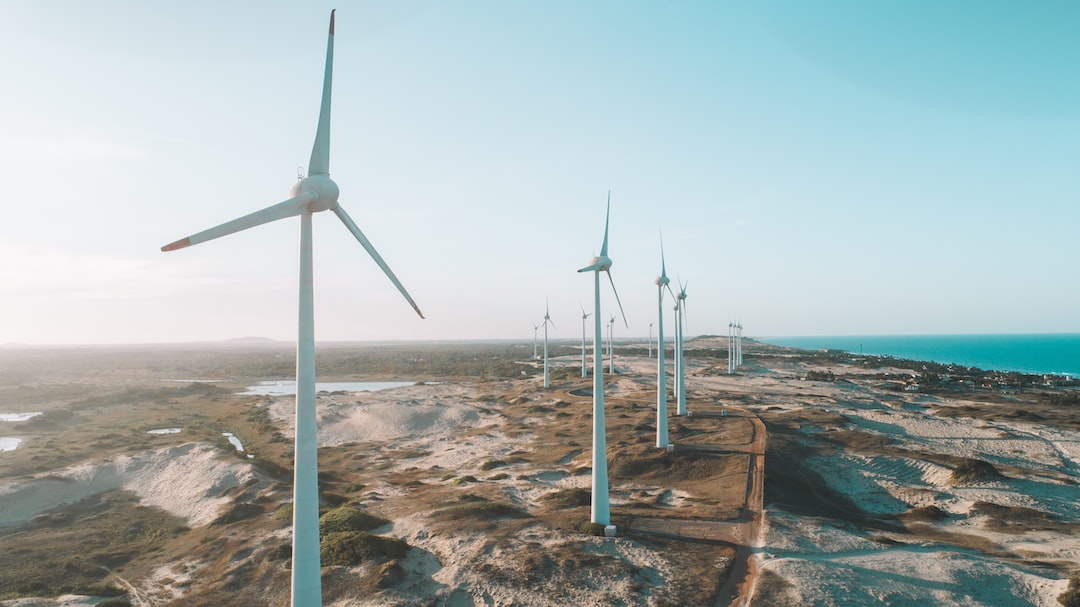Owning a home is a dream for many, but it comes with hidden costs that can catch you off guard. While the idea of having a place to call your own and build equity is appealing, it's important to understand the true cost of homeownership before taking the plunge. From property taxes and home insurance to maintenance and repairs, there are various expenses that come with owning a home. By understanding these costs and budgeting for them, you can avoid financial stress and be better prepared for unexpected expenses.
Key Takeaways
- Owning a home comes with hidden costs beyond the mortgage payment.
- Property taxes can vary greatly depending on location and can significantly impact your budget.
- Home insurance is necessary to protect your investment and should be factored into your monthly expenses.
- Maintenance and repairs are ongoing expenses that should be budgeted for to avoid unexpected financial strain.
- Energy bills and HOA fees can also impact your budget and should be considered when purchasing a home.
Property Taxes: How Much Will You Be Paying?
One of the major expenses that homeowners face is property taxes. Property taxes vary by state and can be a significant expense for homeowners. The amount you pay in property taxes is based on the assessed value of your home and the tax rate in your area. It's important to understand how property taxes are calculated and budget for them accordingly.
To calculate your property taxes, you'll need to know the assessed value of your home. This is determined by the local government and is based on factors such as the size of your home, its location, and recent sales of similar properties in the area. Once you know the assessed value, you can multiply it by the tax rate to determine your annual property tax bill.
Budgeting for property taxes is essential to avoid financial stress. It's important to factor in this expense when determining how much you can afford to spend on a home. You should also be prepared for potential increases in property taxes over time, as they can fluctuate based on changes in local tax rates or reassessments of property values.
Home Insurance: Protecting Your Investment
Home insurance is another crucial expense for homeowners. It's necessary to protect your investment from unexpected events like natural disasters, theft, or accidents that cause damage to your property. Without proper insurance coverage, you could be left with significant financial losses.
There are different types of home insurance policies available, and the cost will vary depending on factors such as the value of your home, its location, and the level of coverage you choose. It's important to understand the different types of home insurance and their costs to make an informed decision.
A standard home insurance policy typically covers the structure of your home, your personal belongings, liability protection, and additional living expenses if you're unable to live in your home due to a covered event. However, there may be additional coverage options available for specific risks or valuable items that require extra protection.
When budgeting for home insurance, it's important to consider the cost of the premium as well as any deductibles or out-of-pocket expenses you may be responsible for in the event of a claim. It's also a good idea to shop around and compare quotes from different insurance providers to ensure you're getting the best coverage at the most affordable price.
Maintenance and Repairs: The Ongoing Expenses of Homeownership
| Energy Bill | Impact on Budget |
|---|---|
| Electricity | High impact |
| Natural Gas | Medium impact |
| Oil | High impact |
| Propane | High impact |
| Solar | Low impact |
One aspect of homeownership that can catch many people off guard is the ongoing maintenance and repair costs. Unlike renting, where the landlord is responsible for these expenses, homeowners are responsible for maintaining their own property.
Regular maintenance tasks such as lawn care, gutter cleaning, and HVAC system maintenance can add up quickly. Additionally, unexpected repairs such as a leaky roof or a broken appliance can put a strain on your budget if you're not prepared.
Budgeting for these expenses is crucial to avoid financial stress. It's recommended to set aside a portion of your monthly budget specifically for home maintenance and repairs. This way, you'll have funds available when needed and won't have to rely on credit cards or loans to cover these expenses.
Staying on top of regular maintenance tasks can also save you money in the long run. By taking care of small issues before they become major problems, you can avoid costly repairs down the line. It's also a good idea to educate yourself on basic home maintenance tasks and learn how to do them yourself, as this can save you even more money.
Energy Bills: The Impact on Your Budget

Energy bills can be a significant expense for homeowners, especially during extreme weather conditions. Heating and cooling your home can account for a large portion of your monthly budget, so it's important to understand how to reduce energy consumption and lower your bills.
There are several steps you can take to make your home more energy-efficient. Insulating your home properly, sealing air leaks, and using energy-efficient appliances and light bulbs can all help reduce your energy consumption. It's also a good idea to adjust your thermostat settings and use programmable thermostats to optimize energy usage.
When purchasing new appliances or making upgrades to your home, it's important to consider their energy efficiency. Look for appliances with the ENERGY STAR label, as these are certified to be more energy-efficient than standard models. While energy-efficient appliances may have a higher upfront cost, they can save you money in the long run through reduced energy consumption.
By taking steps to reduce your energy consumption and choosing energy-efficient options, you can lower your monthly bills and save money over time.
HOA Fees: What You Need to Know
If you're considering buying a home in a community with a homeowners association (HOA), it's important to understand the fees associated with it. HOAs charge fees for maintaining common areas such as parks, pools, and landscaping, as well as enforcing community rules.
The amount of HOA fees can vary depending on factors such as the amenities provided, the size of the community, and the level of services offered. It's important to review the HOA documents before buying a home to understand the fees and rules associated with the community.
When budgeting for a home with HOA fees, it's important to factor in this expense along with your mortgage payment, property taxes, and other monthly expenses. It's also a good idea to consider any potential increases in HOA fees over time, as these can occur to cover rising costs or fund major community projects.
Upgrades and Renovations: The Cost of Making Your House a Home
One of the joys of homeownership is the ability to make your house feel like a home through upgrades and renovations. However, these upgrades come with a cost, and it's important to budget for them accordingly.
When planning upgrades and renovations, it's important to prioritize necessary improvements over cosmetic changes. Focus on projects that will improve the functionality or energy efficiency of your home, as these will provide the most value in the long run.
It's also important to set a realistic budget for your upgrades and renovations. Research the costs of materials and labor for the projects you have in mind, and be prepared for unexpected expenses that may arise during the process. It's a good idea to set aside a contingency fund to cover any unforeseen costs.
If you're planning major renovations or additions to your home, it may be necessary to obtain financing. Consider your options carefully and choose the financing option that best fits your needs and budget. It's important to factor in the cost of borrowing when budgeting for these projects.
Mortgage Interest: The Long-Term Cost of Borrowing
For most homeowners, a mortgage is necessary to finance the purchase of their home. While having a mortgage allows you to become a homeowner without paying the full purchase price upfront, it also comes with long-term costs in the form of interest.
Mortgage interest is a significant expense over the life of your loan. The amount you pay in interest depends on factors such as the interest rate on your loan, the length of your loan term, and the amount you borrow. It's important to understand how mortgage interest is calculated and choose the right loan to save money.
To calculate your mortgage interest, you'll need to know the interest rate on your loan and the amount you borrow. Multiply the interest rate by the loan amount to determine your annual interest expense. Over the life of your loan, this can add up to thousands or even tens of thousands of dollars.
When choosing a mortgage, it's important to compare interest rates and loan terms from different lenders. A lower interest rate can save you a significant amount of money over time. Additionally, consider the length of your loan term and how it will impact your monthly payments and overall interest expense.
Moving and Closing Costs: The Expenses You Can't Avoid
When buying or selling a home, there are unavoidable expenses in the form of moving and closing costs. These costs can add up quickly and should be factored into your budget.
Moving costs can include hiring professional movers, renting a moving truck, purchasing packing supplies, and any temporary storage fees if needed. The cost will depend on factors such as the distance of your move, the amount of belongings you have, and whether you choose to hire professionals or do it yourself.
Closing costs are fees associated with finalizing the purchase or sale of a home. These can include appraisal fees, title insurance, attorney fees, loan origination fees, and more. The exact amount will vary depending on factors such as the purchase price of the home and the location.
It's important to budget for these expenses when planning to buy or sell a home. Moving costs can be estimated based on your specific circumstances, while closing costs can be estimated by obtaining quotes from different service providers involved in the transaction.
Preparing for the Hidden Costs of Homeownership
Owning a home comes with hidden costs that can catch you off guard if you're not prepared. By understanding these costs and budgeting for them, you can avoid financial stress and enjoy the benefits of homeownership.
Property taxes, home insurance, maintenance and repairs, energy bills, HOA fees, upgrades and renovations, mortgage interest, and moving and closing costs are all expenses that homeowners should be aware of. By factoring these costs into your budget and planning accordingly, you can avoid financial surprises and be better prepared for unexpected expenses.
Owning a home is a significant financial commitment, but with proper planning and budgeting, it can be a rewarding experience. By understanding the true cost of homeownership and preparing for the hidden expenses, you can enjoy the benefits of owning a home without the stress of unexpected financial burdens.

